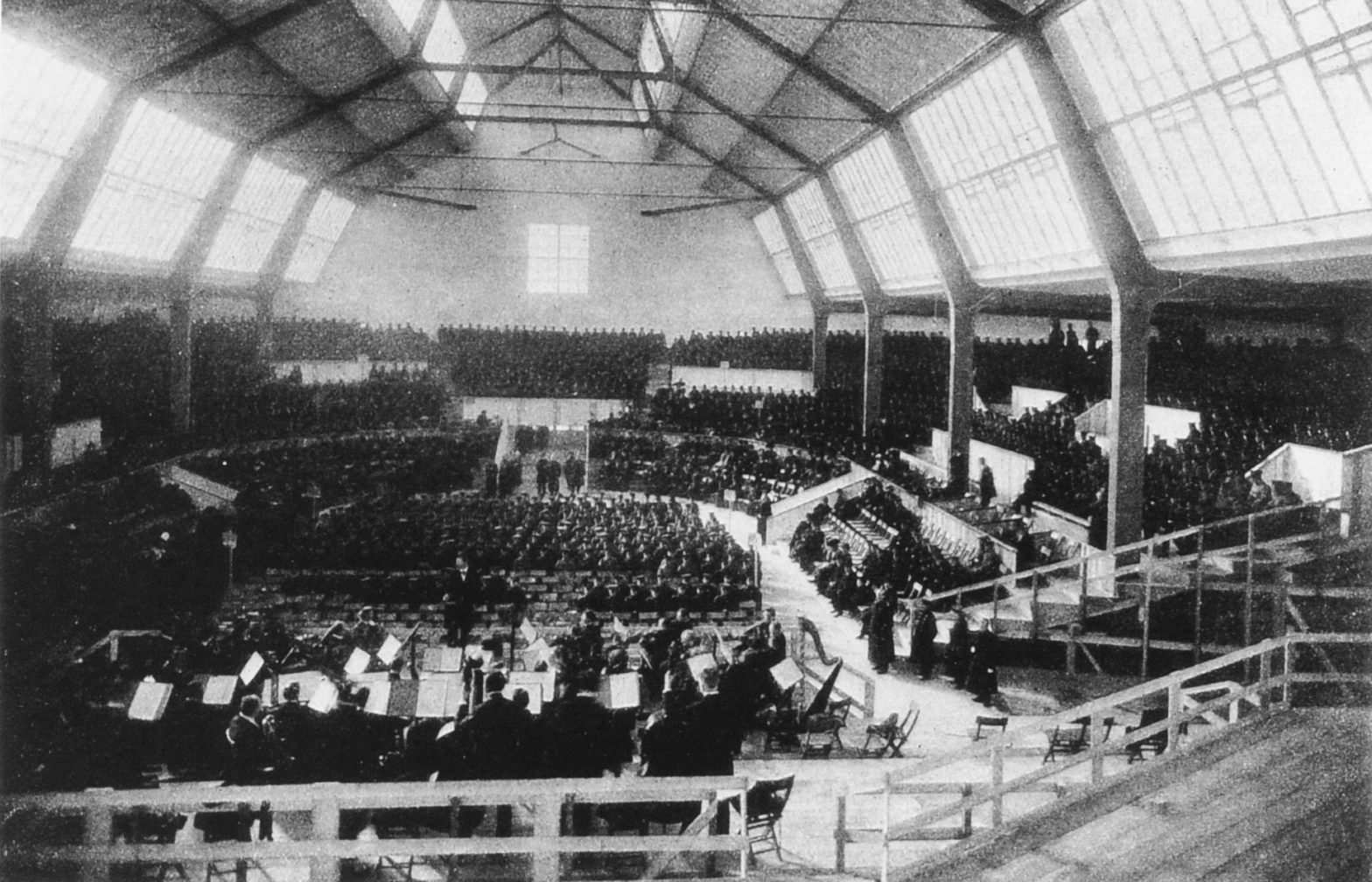|
| This is my post from this week's Tuesday Blog. |
For September, both of my Tuesday Blog installments are dedicated to the music of Gustav Mahler, featuring two of his later symphonies his “Tragic” Sixth and this week, his mammoth Eighth.
Until 1901, Mahler's compositions had been heavily influenced by the German folk-poem collection Des Knaben Wunderhorn. The music of Mahler's many Wunderhorn settings is reflected in his Symphonies No. 2, No. 3 and No. 4, which all employ vocal as well as instrumental forces. From about 1901, however, Mahler's music underwent a change in character as he moved into the middle period of his compositional life. Here, the more austere poems of Friedrich Rückert replace the Wunderhorn collection as the primary influence. During this period Symphonies No. 5, No. 6 and No. 7 were written, all as purely instrumental works.
Two notes in Mahler's handwriting dating from June 1906 show that early schemes for his 8th symphony, which he may not at first have intended as a fully choral symphony, were based on a four-movement structure in which two "hymns" surround an instrumental core. One of these hymns was Veni creator; outlines show that Mahler had fixed on the idea of opening with the Latin hymn, but had not yet settled on the precise form of the rest.
From Mahler's later comments, it is evident that the four-movement plan was relatively short-lived. He soon replaced the last three movements with a single section, essentially a dramatic cantata, based on the closing scenes of Goethe's Faust, the depiction of an ideal of redemption through eternal womanhood.
As was usually his pattern, Mahler would “compose” one Summer, and “orchestrate” the following Summer. Thus, the Eighth was composed in his summer retreat in Maiernigg in 1906, and planned to pick up the work in 1907 – the same summer where his daughter Maria died, and when he was diagnosed with a heart condition. He also would lose his position in Vienna, and in the ensuing months begin engagements in New-York.
Mahler’s Eighth would not get its premiere until three years later, September 12 1910 (108 years ago to the day, tomorrow) in Munich, the last of his works to be premiered in his lifetime. The occasion was a triumph—"easily Mahler's biggest lifetime success," according to biographer Robert Carr. As depicted in this vintage photograph, the nickname “Symphony of A Thousand” comes from the amassed forces in Munich. It is not in fact certain that more than 1,000 performers participated in the Munich premiere. La Grange enumerates a chorus of 850 (including 350 children), 157 instrumentalists and the eight soloists, to give a total of 1,015. However, Carr suggests that there is evidence that not all the Viennese choristers reached the hall and the number of performers may therefore not have reached 1,000.
The performance featured today, from my vinyl collection – in fact one of my most treasured disks - was a session recorded at the Sofiensaal, Vienna, August & September 1971. Sir Georg Solti and the Chicago Symphony are at the absolute height of their powers in this phenomenal recording. This is surely one of the most incredibly accurate and exhilarating orchestral performances put on disk, and the soloists (including masters like Lucia Popp and Arleen Auger) could not have been better.
Happy Listening!
Gustav MAHLER (1860-1911)
Symphony No. 8 in E-flat major (1906-07) “Sinfonie der Tausend”
Sinfonie mit Sopran-, Alt-, Tenor-, Bariton- und Basssolisten, zwei großen gemischten Chören und Knabenchor
Soprano Vocals [Magna Peccatrix] – Heather Harper
Soprano Vocals [Mater Gloriosa] – Arleen Auger
Soprano Vocals [Una Poenitentium] – Lucia Popp
Contralto Vocals [Maria Aegyptiaca] – Helen Watts
Contralto Vocals [Mulier Samaritana] – Yvonne Minton
Tenor Vocals [Doctor Marianus] – René Kollo
Baritone Vocals [Pater Ecstaticus] – John Shirley-Quirk
Bass Vocals [Pater Profundus] – Martti Talvela
Vienna Boys Choir, Vienna Singverein Chorus, Vienna State Opera Chorus
[Chorus Masters: Helmut Froschauer and Norbert Balatsch]
Chicago Symphony Orchestra
Sir Georg Solti, conducting
London Records – OSA-1295
Format: 2 × Vinyl, LP
Details - https://www.discogs.com/Mahler-Solti...elease/3103204
Internet Archive - https://archive.org/details/MahlerSymphonyNo.8Solti


:format(jpeg):mode_rgb():quality(90)/discogs-images/R-3103204-1372966378-2183.jpeg.jpg)
No comments:
Post a Comment